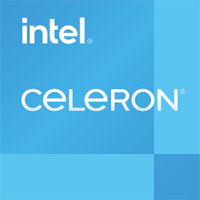
Il processore Intel Celeron N3000 è sviluppato sul nodo tecnologico 14 nm Braswell . La sua velocità di clock di base è 1.04 GHz e la velocità di clock massima in turbo boost è 2.08 GHz . Intel Celeron N3000 contiene 2 core di elaborazione. Per fare la scelta giusta per l'aggiornamento del computer, familiarizzare con le specifiche tecniche dettagliate e i risultati dei benchmark. Verificare la compatibilità del socket prima di scegliere.
 Core della CPU e frequenza di base Core della CPU e frequenza di base |
||||
|---|---|---|---|---|
| Frequenza | 1.04 GHz | Core | 2 | |
| Turbo (1 nucleo) | 2.08 GHz | Thread della CPU | 2 | |
| Turbo (tutti i core) | 2.08 GHz | |||
| Hyperthreading? | No | Overclock? | No | |
| Architettura di base | normal | |||
 Grafica interna Grafica interna |
|
|---|---|
| Nome GPU | Intel HD Graphics 400 |
| GPU frequency | 0.32 GHz |
| GPU (Turbo) | 0.60 GHz |
| Generation | |
| Versione DirectX | 12 |
| Execution units | 12 |
| Shader | 96 |
| massimo Memoria | 8 GB |
| massimo mostra | 3 |
| Tecnologia | 14 nm |
| Data di rilascio | Q1/2015 |
 Supporto codec hardware Supporto codec hardware
|
|
|---|---|
| H264 | Decode / Encode |
| H265 / HEVC (8 bit) | No |
| H265 / HEVC (10 bit) | No |
| VP8 | Decode |
| VP9 | No |
| AV1 | No |
| AV1 | No |
| AVC | Decode / Encode |
| JPEG | Decode |
 Memoria e PCIe Memoria e PCIe
| ||||
|---|---|---|---|---|
| Tipo di memoria | DDR3L-1600 SO-DIMM | |||
| massimo Memoria | ||||
| Canali di memoria | 2 | ECC | No | |
| Versione PCIe | 2.0 | PCIe lanes | 4 | |
 Gestione termica Gestione termica
| ||||
|---|---|---|---|---|
| TDP (PL1) | 4 W | TDP (PL2) | ||
| TDP up | -- | TDP down | -- | |
| Tjunction max | -- | |||
 Dettagli tecnici Dettagli tecnici
| |
|---|---|
| Instruction set (ISA) | x86-64 (64 bit) |
| Architettura | Braswell |
| L2-Cache | -- |
| L3-Cache | 2.00 MB |
| Tecnologia | 14 nm |
| Virtualizzazione | VT-x, VT-x EPT |
| Data di rilascio | Q1/2015 |
| Socket | BGA 1170 |
Geekbench 5 è un benchmark multipiattaforma che utilizza pesantemente la memoria di sistema. Una memoria veloce spingerà molto il risultato. Il test single-core utilizza solo un core della CPU, la quantità di core o la capacità di hyperthreading non conta.
Geekbench 5 è un benchmark multipiattaforma che utilizza pesantemente la memoria di sistema. Una memoria veloce spingerà molto il risultato. Il test multi-core coinvolge tutti i core della CPU e trae un grande vantaggio dall'hyperthreading.
Le prestazioni di calcolo teoriche dell'unità grafica interna del processore con precisione semplice (32 bit) in GFLOPS. GFLOPS indica quanti miliardi di operazioni in virgola mobile l'iGPU può eseguire al secondo.
Alcune delle CPU elencate di seguito sono state sottoposte a benchmark da CPU-Benchmark. Tuttavia, la maggior parte delle CPU non è stata testata e i risultati sono stati stimati da una formula proprietaria segreta di CPU-Benchmark. In quanto tali, non riflettono accuratamente i valori effettivi del marchio Passmark CPU e non sono approvati da PassMark Software Pty Ltd.
Cinebench R15 è il successore di Cinebench 11.5 ed è anch'esso basato su Cinema 4 Suite. Cinema 4 è un software utilizzato in tutto il mondo per creare forme 3D. Il test single-core utilizza solo un core della CPU, la quantità di core o la capacità di hyperthreading non conta.
Cinebench R15 è il successore di Cinebench 11.5 ed è anch'esso basato su Cinema 4 Suite. Cinema 4 è un software utilizzato in tutto il mondo per creare forme 3D. Il test multi-core coinvolge tutti i core della CPU e trae un grande vantaggio dall'hyperthreading.
Geekbench 3 è un benchmark multipiattaforma che utilizza pesantemente la memoria di sistema. Una memoria veloce spingerà molto il risultato. Il test single-core utilizza solo un core della CPU, la quantità di core o la capacità di hyperthreading non conta.
Geekbench 3 è un benchmark multipiattaforma che utilizza pesantemente la memoria di sistema. Una memoria veloce spingerà molto il risultato. Il test multi-core coinvolge tutti i core della CPU e trae un grande vantaggio dall'hyperthreading.
Cinebench 11.5 è basato su Cinema 4D Suite, un software popolare per generare moduli e altre cose in 3D. Il test single-core utilizza solo un core della CPU, la quantità di core o la capacità di hyperthreading non conta.
Cinebench 11.5 è basato su Cinema 4D Suite, un software popolare per generare moduli e altre cose in 3D. Il test multi-core coinvolge tutti i core della CPU e trae un grande vantaggio dall'hyperthreading.
Cinebench 11.5 è basato su Cinema 4D Suite, un software popolare per generare moduli e altre cose in 3D. Il test iGPU utilizza l'unità grafica interna della CPU per eseguire i comandi OpenGL.